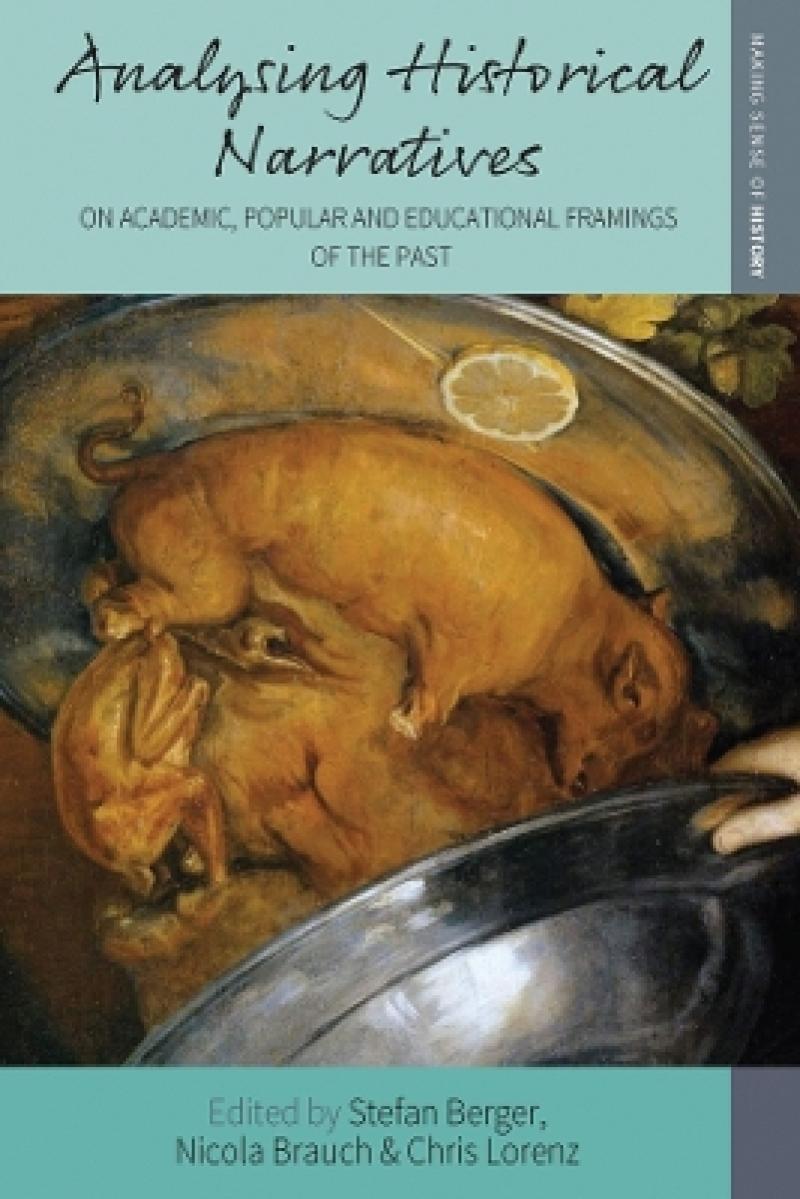<p>
<em>“This is an important and timely volume, which will play a very useful role in reflection on and teaching about history. It wisely forces us to link the scholarly, pedagogical, popular and digital aspects of making history through narrative.”</em> <strong>• David Gary Shaw</strong>, Wesleyan University</p>
<p>
<em>“Truly needed and genuinely topical. There have been very few such empirical studies into concrete historical narratives and across different genres.”</em> <strong>• Marek Tamm</strong>, Tallinn University</p>
For all of the recent debates over the methods and theoretical underpinnings of the historical profession, scholars and laypeople alike still frequently think of history in terms of storytelling. Accordingly, historians and theorists have devoted much attention to how historical narratives work, illuminating the ways they can bind together events, shape an argument and lend support to ideology. From ancient Greece to modern-day bestsellers, the studies gathered here offer a wide-ranging analysis of the textual strategies used by historians. They show how in spite of the pursuit of truth and objectivity, the ways in which historians tell their stories are inevitably conditioned by their discursive contexts.
List of Illustrations
Acknowledgements
Narrativity and Historical Writing: Introductory Remarks
Chris Lorenz, Stefan Berger and Nicola Brauch
Part I: Professional History Writing
Chapter 1. Thucydides' Narrative of the Vanquished: Death, Narrative Gazes and Historical Time
Alexandra Lianeri
Chapter 2. History beyond Narration: The Shifting Terrain of Bloodlands
Wulf Kansteiner
Chapter 3. Secularization Narratives in 1950s Europe: Sources, Characteristics and Effects
Herman Paul
Chapter 4. Narratives of Global History: Expounding Global Interconnections
Gabriele Lingelbach
Part II: School Textbooks in History
Chapter 5. More Than Just Barbarians: The Two-Faced Narrative of Ancient Persia in German Textbooks since 1900
Björn Onken
Chapter 6. Historicizing Present-Day European Societies by Telling Medieval (Hi)Story in Schoolbooks
Daniel Wimmer
Chapter 7. Narrative Structure of High School World History Textbooks in Postwar Japan
Naoki Odanaka
Chapter 8. Historical Maps as Narratives: Anchoring the Nation in History Textbooks
Everardo Perez-Manjarrez and Mario Carretero
Part III: Histories in Various Media
Chapter 9. Social Media and Multimodal Historical Representation: Depicting Auschwitz on Instagram
Robbert-Jan Adriaansen
Chapter 10. The Civil Rights Movement (Re)Narrated
Kenan van de Mieroop
Chapter 11. Media Narratives of 1970s Left-Wing Terrorism
Jörg Requate
Chapter 12. Time Travel as Running around in Circles: The Popular Historical Novel and the Sense of Historicity in Today’s Society
Daniel Fulda
Part IV: National Histories
Chapter 13. National Narratives in Chinese Global History Writing
Xupeng Zhang
Chapter 14. Narratives of Brazilian History: From Liberal to Politically Incorrect
Valdei Araujo
Chapter 15. Changing LUK: Nation and Narration in the First and the Third editions of Life in the United Kingdom
Arthur Chapman
Analysing Historical Narratives: Concluding Remarks
Stefan Berger and Chris Lorenz
Index
Produktdetaljer
Biographical note
Stefan Berger is Professor of Social History and Director of the Institute for Social Movements at Ruhr University Bochum since 2011. He is also Executive Chair of the Foundation History of the Ruhr and Honorary Professor at Cardiff University in the UK.
